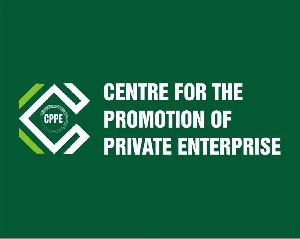Lagos residents are taking mental note of the Babajide Sanwo-Olu administration. More pronounced of such efforts are in the areas of infrastructural development, security among others. They are studying each of these unexpected but positive results evidenced in the state.
One of such example is the recently inauguration of the 1.4km dual carriageway Flyover in Pen Cinema Junction, Agege. Lagosians are in agreement that the presence of the flyover will reduce travel time and save man-hour that would have been otherwise lost to traffic on the road; provide better riding surface, leading to reduced maintenance cost; boost inter connectivity and generally make life more meaningful to commuters in the state.
However, despite this achievement and related accomplishments that characterise the present administration in the state, there exists a dangerous oversight that is laced with the capacity to make nonsense of the current effort to better the life chances of Lagosians, if not given the urgency of attention that it deserves.
This concern has to do with, and focuses on months of prostrated inability by the Lagos State Water Corporation to provide potable water for the residents of Alapere/Ketu areas of the state.
For the sake of clarity, Alapere/Ketu is a densely populated Lagos suburb, in Agboyi Ketu Local Council Development Area. It falls with the federally approved/recognised Kosofe Local Government Area with an area of about 81 km². The Local Council houses the largest food/fruit market in the state called Mile 12 Market. And its population is arguably well above a million residents.
Making the situation more worrisome is that the water scarcity which started one morning has suddenly strolled into months. And has exposed residents to daily search for water in sources whose level of hygiene can neither be ascertained nor guaranteed.
This is not the only apprehension. Qualifying the situation as a predicament is the awareness that residents of the area with private boreholes who would have helped ameliorate this suffering are daily frustrated by the poor electricity supply to operate the boreholes. No thanks to the Ikeja Electric operating in the location.
Admittedly, Lagosians know that government can’t solve all their problems and they don’t want. But they know that there are things they cannot do on their own but must require government support. A very good example of such include but not limited to the supply of clean water to the citizenry, electricity and provision of schools in an environment that works.
In view of the above, the argument by some that there is nothing ‘criminal’ about the government’s inability to service an area with public water sources becomes sophistry.
Now, let’s cast a glance at the consequences of such failures. First, apart from the fact that Lagos State with its mega city status ought to have outgrown a city where residents will, in this 21st century, rely on private water vendors for their daily water needs while those that have no resources to engage these vendors are forced to the derogatory level of scooping water from gutters.
And, as we know, contaminated water and poor sanitation are linked to transmission of diseases such as cholera, diarrhoea, dysentery, hepatitis A, and typhoid. Absent, inadequate, or inappropriately managed water and sanitation services expose individuals to preventable health risks.
Going by the Resolution A/RES/64/292, the United Nations General Assembly, July 2010 and General Comment No. 15, UN Committee on Economic, Social and Cultural Rights, November 2002, the human right to water and sanitation is a principle that acknowledges that clean drinking water and sanitation are essential to every person’s life. It was recognised as a human right by the United Nations General Assembly on July 28, 2010.
Besides, the Resolution calls upon states and international organisations to provide financial resources to help provide safe, clean, accessible and affordable drinking water and sanitation for all.
Sanwo-Olu should, among other things, ask the people in charge: ‘Why does this situation exist? How did it happen? What caused it? When did it first occur? What holds them back from achieving such a solution? What are the different ways that we could solve this problem? Of all the different ways, which solution seems to be the most acceptable, all things considered?’
Above all, a people surrounded by water like Lagos residents need potable water to drink and live. This is a huge task to ask from the government.
Opinions of Saturday, 8 May 2021
Columnist: Jerome Utomi















